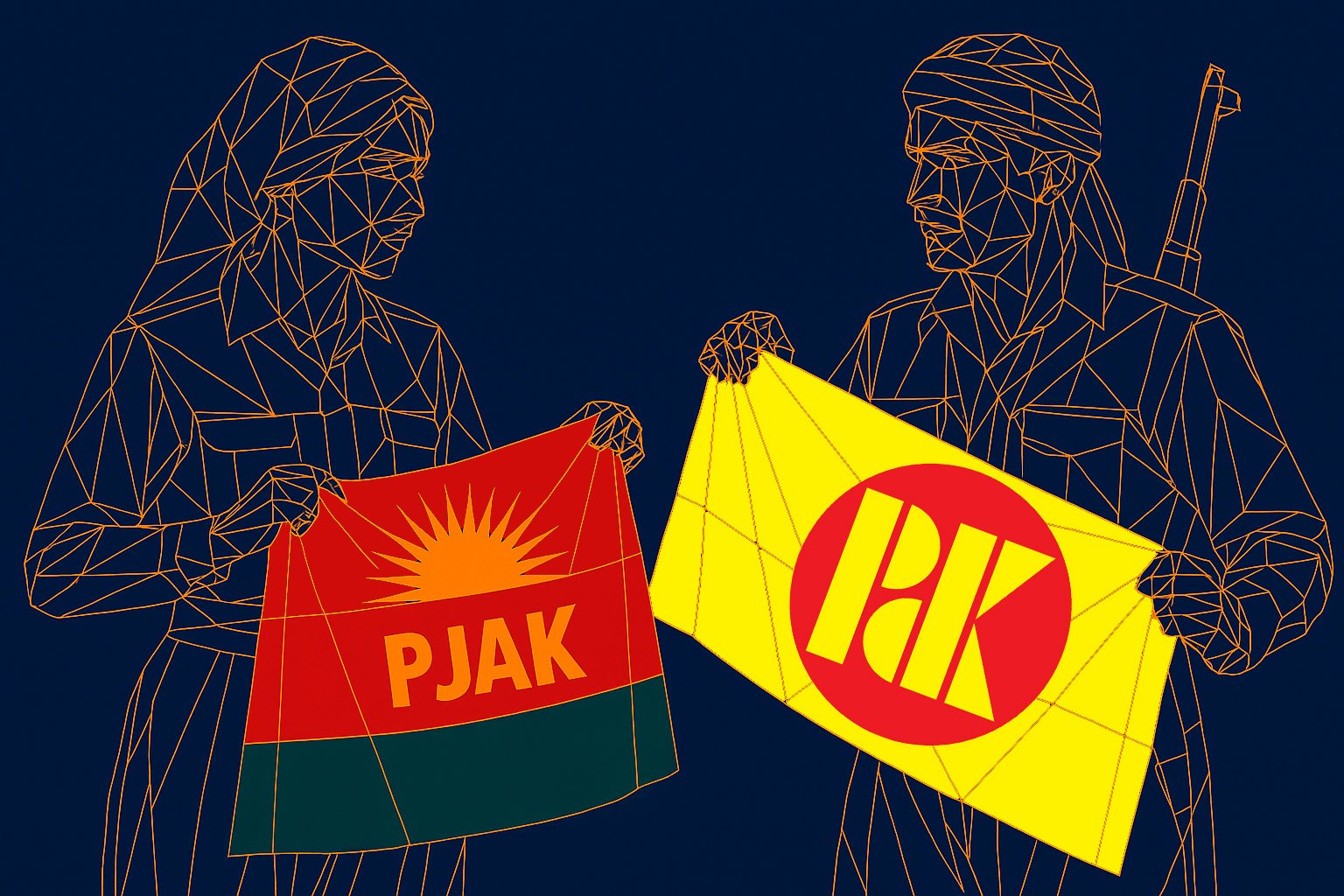PKK and KDP Quietly Lay the Groundwork for Plan B in Iranian Kurdistan

Iranian Foreign Minister Abbas Araghchi recently conducted his first phone conversation with Kurdistan Region President Nechirvan Barzani since Israel’s military campaign against Iran began. Both sides’ official readouts emphasized implementing the Iran-Iraq security agreement, which mandates the disarmament of Iranian Kurdish opposition groups operating from the Kurdistan Region. The Iranian readout specifically highlighted preventing “exploitation” aimed at “destabilizing border areas.”
Context: Israel’s ongoing air campaign against Iran has reached unprecedented levels, including targeted strikes that eliminated key Iranian military leadership. In response, Iranian Kurdish opposition groups such as PJAK, Komala, and KDPI have gone on high alert and begun issuing calls for coordination, signaling a desire to exploit any openings that may emerge within Iran’s Kurdish regions.
Analysis: While the Araghchi-Barzani phone call can be seen as part of Araghchi’s diplomatic outreach since the Israeli attacks began on June 13th, the nature of his conversation with Nechirvan Barzani appears different. The emphasis on full implementation of the security agreement clearly reflects Iran’s fear regarding the movement of Iranian Kurdish groups who are supposed to have been fully disarmed and placed in civilian UN-supervised camps.
More critically, the exchange must be understood in the context of deep-rooted mistrust between Tehran and the KDP. Iran has directly targeted Erbil with ballistic missile strikes, most notably in 2022 and again in a far more expansive attack in 2024, justifying these actions by accusing the KDP of harboring Israeli Mossad operatives in Erbil who IRGC alleged, had coordinated espionage and sabotage operations inside Iran. These accusations, denied by the KDP, have heightened tensions and placed Erbil squarely within Tehran’s crosshairs.
According to one regional source, the latest phone call was triggered by Iranian intelligence detecting KDP-linked movement in support of Iranian Kurdish opposition factions. Tehran fears such moves could be part of a broader Plan B to prepare for a scenario in which the current Israeli campaign may lead to the regime’s collapse or spark protests that create new possibilities.
At the same time, well-placed sources indicate that it is the PKK-affiliated group PJAK that first stated quietly preparing to exploit any vacuum in Iran’s Kurdish regions, wanting to create a fait accompli in Iranian Kurdish areas should any opportunity arise, similar to how they took over Syrian Kurdish areas following the Syrian uprising. However, it has not yet moved, as the regime still maintains internal stability. PJAK is said to be increasingly making preparations, prepared to act if widespread protests erupt and chaos ensues, creating an opening to intervene and assert control over parts of the Kurdish region. For now, it is holding back, waiting for the regime’s grip to weaken and the right trigger to emerge.
In this context, the KDP’s movements appear to be a reaction to PJAK’s preparations, an attempt to take the initiative and prevent a Syria-style takeover by PKK-affiliated forces in the event of regime collapse. However, Iranian intelligence appears to have detected these activities, prompting anger in Tehran and leading to the phone call with Nechirvan Barzani. The message is clear: Iran is aware of the KDP’s actions and there will be consequences if they continue.
However, all of this is unfolding within a broader and more complex regional landscape. PJAK is not an isolated actor; it is an offshoot of the PKK, which is itself currently engaged in laying down arms as part of a potential settlement with Turkey. Additionally, a key part of Iranian Kurdistan around Urmia consists of mixed areas with Azeri Turks, who traditionally serve as a pillar of the Iranian regime but whose nationalist factions are increasingly backed by Turkey and Azerbaijan. This complex landscape means the situation cannot be simplified to mere preparations by the KDP and PKK over the course of a few days.
Either way, while the full extent of preparations by either the KDP or PJAK remains uncertain, the diplomatic readouts and surrounding regional context make one thing clear: Iranian Kurdish groups were central to the phone call.









